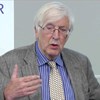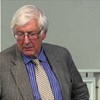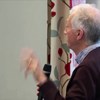sustain

The dangers of excessive ambitions within the social sciences - Jon Elster
www.iffs.se Part 1: In this lecture Jon Elster diagnoses this flaw and discusses possible remedies. He argues that actual agents are intrinsically less sophisticated than the models assume them to
Living Alone Together: Individualized Collectivism in Swedish Communal Housing
Sociology, first published online,doi.org/10.1177/0038038519834871 Abstract In this study, situated in urban Stockholm, communal housing stands out as highly individualized. The residents positively app

The dangers of excessive ambitions within the social sciences - Tore Ellingsen
www.iffs.se Part 2: Comment by Tore Ellingsen In this lecture Jon Elster diagnoses this flaw and discusses possible remedies. He argues that actual agents are intrinsically less sophisticated than

The dangers of excessive ambitions within the social sciences - Jon Elster replies
www.iffs.se Part 4: Jon Elster answers to comments from Tore Ellingsen and Bengt Hansson. In this lecture Jon Elster diagnoses this flaw and discusses possible remedies. He argues that actual age

The dangers of excessive ambitions within the social sciences - Jon Elster Q&A
www.iffs.se Part 5: Questions from the audience In this lecture Jon Elster diagnoses this flaw and discusses possible remedies. He argues that actual agents are intrinsically less sophisticated th

The dangers of excessive ambitions within the social sciences - Bengt Hansson
www.iffs.se Part 3: Comment by Bengt Hansson In this lecture Jon Elster diagnoses this flaw and discusses possible remedies. He argues that actual agents are intrinsically less sophisticated than
Emergence of specialized third-party enforcement
PNAS, Vol. 120, No. 24 Abstract The question of how cooperation evolves and is maintained among nonkin is central to the biological, social, and behavioral sciences. Previous research has focused on exp
Peter Edlund: Constructing an Arbiter of Status: A Study of the European Research Council's Emergence in the Field of Science
Peter Edlund, Researcher at the Department of Business Studies, Uppsala University. Abstract In my presentation, I will develop a theoretical account that centers on how certain actors are constructed i
Mark Jaccard: Economic Efficiency vs Political Acceptability Trade-offs in GHG-reduction Policies
Mark Jaccard, Professor in the School of Resource and Environmental Management at Simon Fraser University, VancouverAbstractThere are obvious reasons why for three decades most jurisdictions have failPublic surveys and observation of real-world GHG reduction successes suggest that explicit carbon pricing (carbon tax and perhaps cap-and-trade) can be substantially more politically difficult than certain regulatory policies for shifting the energy system on to a deep decarbonization trajectory. Nonetheless, some people have argued that carbon pricing is an essential GHG reduction policy, suggesting that sincere politicians must do carbon pricing no matter how politically difficult. But the claim that carbon pricing is essential is factually incorrect. Deep decarbonization can be achieved entirely with regulations. Regulatory policies are unlikely to be as economically efficient as carbon pricing. But not all regulations perform identically when it comes to the economic-efficiency criterion. Flexible regulations have some attributes that make them low cost relative to regulations that require adoption of specific technologies.This talk provides evidence that assesses both the relative economic efficiency of policies and their relative political acceptability. The findings reported here suggest that some kinds of flexible regulations can perform significantly better than explicit carbon pricing in terms of relative political cost per tonne reduced while performing only marginally worse in terms of economic cost per tonne reduced. Presumably, this type of trade-off information could be of value to politicians who sincerely want deep decarbonization but would also like to be rewarded with re-election so that they and competing politicians see the value in ambitious and sustained GHG reduction efforts.

Postdoc to do research on social norm change
Norms can be a driver for change, so in order to understand how our societies will develop over time it is important to understand how norms form and change. We are now searching for a postdoc with extra interest in studying this with us at the Institute for Futures Studies!








